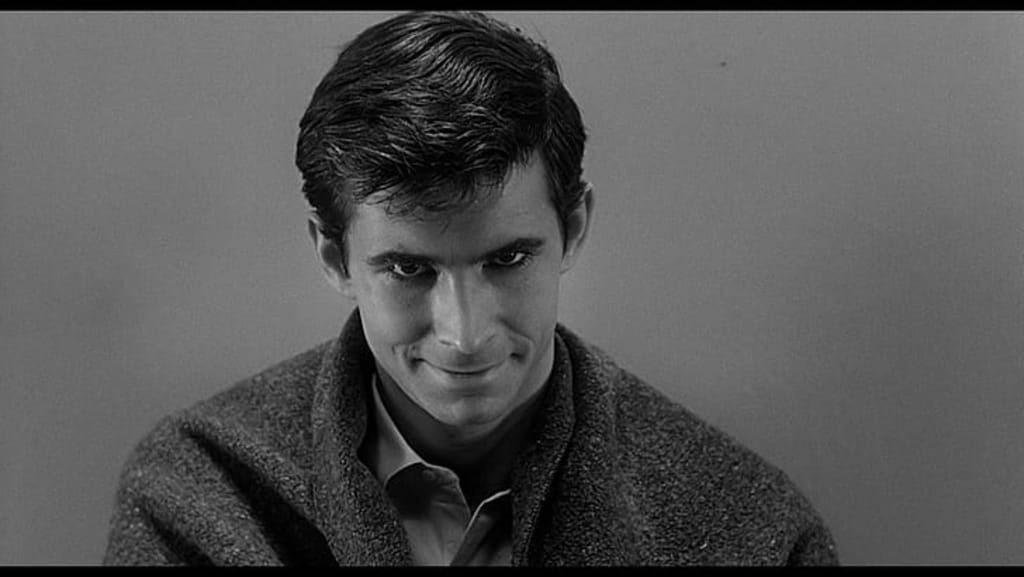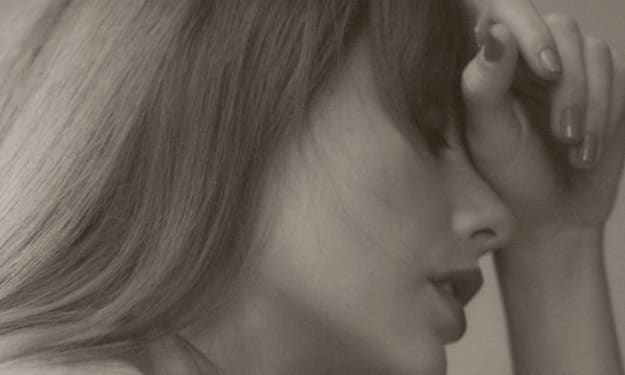The Genius of Psycho's Score
Why Bernard Hermann's iconic music is one of the most intense film soundtracks of all time

One of the most important aspects of Alfred Hitchcock’s classic Psycho is Bernard Hermann’s tense score. In addition to Hitchcock’s brilliant direction that feels meticulous in every shot, the music serves to convey the emotions of the characters, the terror in their eyes, their deepest fears, and their determination to learn more about the strange events at Bates Motel. At its most prominent, the score allows us to get inside the head of Marion Crane, feel the weight of the actions of Norman’s mother, and accentuate the actions of the characters with the help of the editing.
The most obvious effect that Bernard Hermann’s music has on the viewer is to communicate the terror of the characters, particularly when said character is killed by Norman Bates’s “mother.” The first sequence in which that terror is communicated is during the iconic shower sequence. Originally, Hitchcock wanted to show the sequence without music, which admittedly does make sense if you wanted to portray the realistic experience of someone suddenly being stabbed. However, removing the music from the sequence shows why adding music was ultimately a fantastic decision. Sure, without the music, it portrays the event realistically, but with the music, the audience members can feel every single stab, and they clench tighter and tighter as their desire to cut away from the horrifying scene increases. A musical cue similar to the one from the shower scene plays again during the scene where Mrs. Bates kills Arbogast the private investigator and one final time during the scene where she almost kills Marion’s sister, Lila. This music reminds the audience of the terror they felt during the shower sequence and makes the audience fearful for what Mrs. Bates is going to do to the characters. The dreadful musical cues make you even more terrified of Mrs. Bates as a character and thus make the impact of her actions even greater.
A second and more subtle effect that Hermann’s music leaves on the audience is allowing you to experience the thoughts of the characters. The most prevalent example is in the scene where Marion believes that a police officer is following her, where the music allows you to experience her rushing thoughts, her unending nervousness, and her over analyzation of the situation. As the sequence continues and she trades her car in for another used car to hide her identity, the music continues to give you a sense of flighty nervousness, once again allowing you to experience how it feels when Marion darts her eyes around and tries to rush the car dealer so that she can leave as soon as possible. The audience starts overanalyzing the situation -- is the policeman onto her? Will he discover the $40,000 she’s stolen, and if he does, how will he? She continues to drive on, and so does the music. Because of that music, the audience feels just as on edge as Marion does, and the impact wouldn’t be as immense without the music there.
However, there is no way the music would be as astounding in the context of the film if it weren’t for the way it’s edited into the movie. The sequences discussed earlier wouldn’t be nearly as intense if the combination of the music and editing wasn’t as strong as it is. The way the shower sequence is edited doesn’t allow you to catch your breath because it all happens so fast. It cuts back and forth frequently as the music plays in the background, so the audience has no time to mentally block out the feeling of the stabs as Marion is killed. The long shot on Arbogast’s pained face as he falls down the stairs after being stabbed allows you to feel the impact of the stab that kills him and makes you feel his pain, while the music that plays during that shot makes you experience the feeling after the stab. The same can even be said for the policeman sequence with Marion. Her frantic need to make sure she gets away from the police is augmented by the editing. The music makes you experience her thoughts, but the editing shows you why she’s feeling that way and conveys the way she frantically looks around her to make sure she isn’t being followed. The editing only makes you more fearful the more that the policeman is shown seemingly waiting for and watching Marion. The music is important in allowing the audience to step into the shoes of the characters, but the editing is just as important in establishing how the event seemingly unfolds from their point of view.
Bernard Hermann’s music is an incredibly important aspect of the movie Psycho. Its use in character interactions, portraying the thoughts of the characters, and as a supplement to the way the scenes are edited is a crucial part of the movie’s tension, and iconic scenes from the movie wouldn’t be nearly as iconic without that music. It’s musically brilliant, tonally perfect, and one of the best examples of Hermann’s incredible talent as a scorer of films.





Comments
There are no comments for this story
Be the first to respond and start the conversation.